Development of analytical models of learning in animals and testing them using rodents and humans.
Faculty : Balaji Jayaprakash (CNS) and Chandra Murthy (ECE)
Learning is a quintessential process that allows the living beings to change and modulate our behavior. Fundamental to such a process is the abstraction of general rules that govern complex relationship between various stimuli that constitute our environment. Despite the apparent complexity of the process, our brains have evolved various strategies to extract these rules from their lifetime experiences. Key to such a process is the ability to organize and store information in the brain and what happens to these memories. In this project, we will be developing a theoretical framework that could possibly lead to an analytical model for learning. Specifically, learning that results in formation of higher order associations between multiple stimuli that are presented to an animal. These models rely on a probabilistic description of the animal’s behavior. These associations encapsulated in the probabilistic models constitute putative origins of the animal’s ability to arrive at novel solutions to hitherto unforeseen problems. For example, if the probability that an animal takes one of a set of potential actions when presented with a stimulus is represented as a vector, the evolution of this vector could be modeled using a Markov chain. Then, the coefficients governing the transition probability of the Markov chain indicates the learning mechanism. These models will be tested through behavioral experiments involving rodents and longitudinal imaging of the mice brain with sub cellular resolution. The understanding that emerges from such a mathematical description of learning would be used to set-up Bayesian/neural networks and characterize the problem-solving ability implied by these networks. The candidate would be expected to have excellent analytical ability combined with a flair towards performing experiments and analyzing experimental data.
